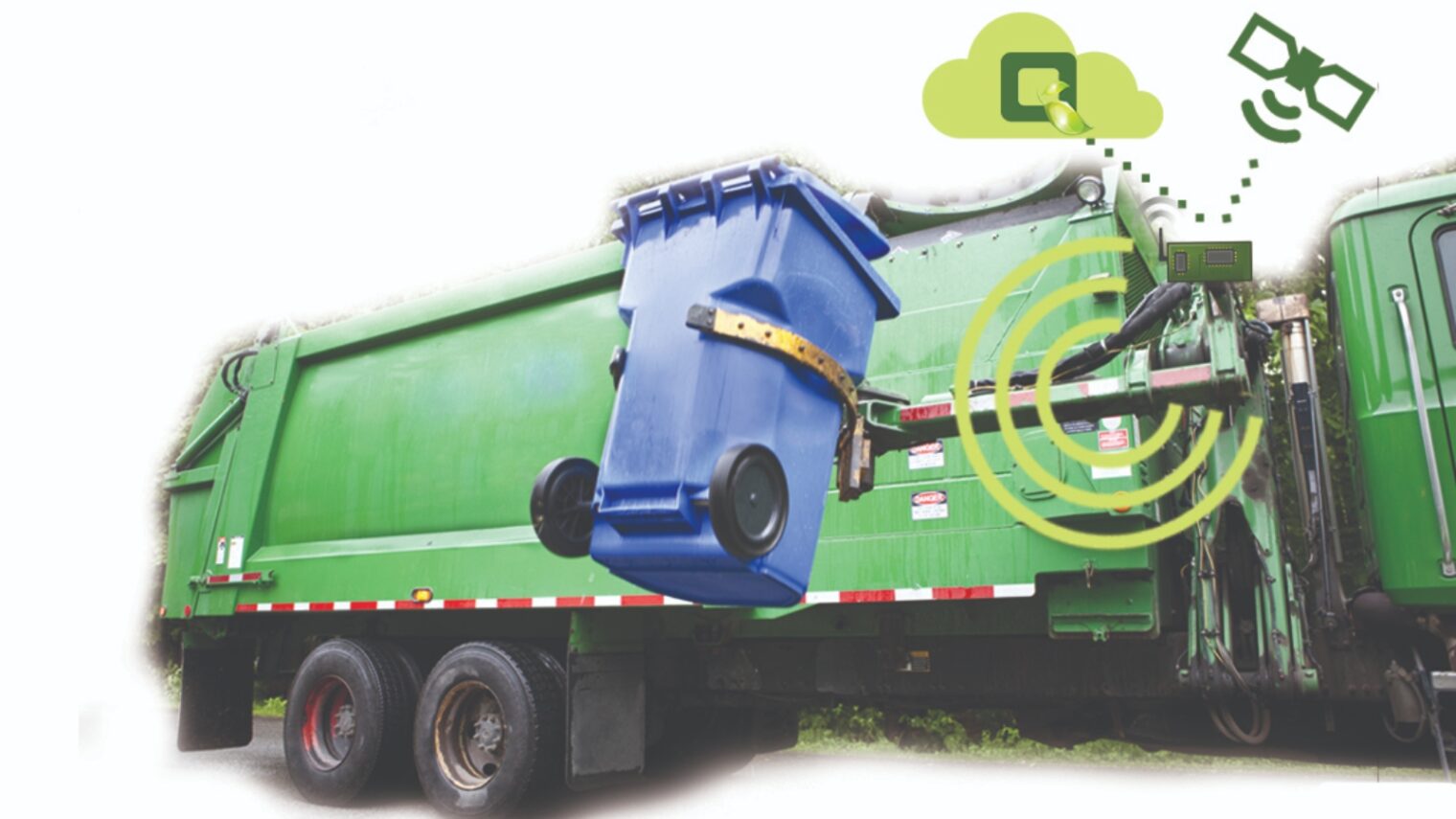The garbage trucks in my city collect trash from each curbside bin at the same time and day every week, no matter if the bins are overflowing or nearly empty. That’s probably how it works in your city too. Israeli startup GreenQ is tossing that outmoded model onto the rubbish heap.
“We’re all about the Internet of Garbage,” CEO and cofounder Shlomy Ashkenazi tells ISRAEL21c. “We’re bringing sensors and big-data analytics to residential garbage routes so municipalities can reduce expenses, reduce emissions and provide better services to their citizens.”
The four-year-old startup designed a connected residential garbage-collection platform enabling municipalities to optimize schedules and routes based on data gathered automatically by the trucks and analyzed for actionable insights.
“Residential trash collection is one of the top five city expenses. Reducing it can have a big impact on your bottom line,” Ashkenazi says.
Ashkenazi and his three cofounders – all with extensive military and/or private-sector leadership experience in Israel – decided to bootstrap the founding of GreenQ in 2015 after research revealed that “the process of waste collection is hugely complicated but not data driven. That was our point of entry.”
It turns out that the need is well known, but several existing automated solutions have not been widely adopted for various reasons, so there was no “gold standard” with which to compete.
“We started from scratch, to define the exact needs that must be addressed and what is important to do and not to do,” Ashkenazi explains. “We did market and technological research to see what was successful and what was not.”
For example, any solution requiring the driver or waste-collection team to perform additional tasks was doomed to failure. “We saw systems that did this and it’s a big no-no. By combining a few key elements in the system, we were able to make it fully automated. There is nothing the team needs to do; we don’t change or slow down the way waste is collected.”
Another pain point was what to do with the collected data. “Each truck collects a few hundred bins per day and a typical city has a fleet of trucks, so it’s not helpful if I’m just sending thousands of data points per day. The municipality need a system that will analyze the data for them and offer insights to managers,” says Ashkenazi.
The GreenQ system is designed to be easily deployable. Following installation of a GreenTrack box containing the computer, camera and sensors – a process that takes six to nine hours per truck — all truck and waste data is instantly accessible 24/7 via a dashboard viewable from any device.
The system provides ongoing monitoring to learn patterns of collection and alert to anything that goes wrong; and plots out efficient scheduling and routes on a dynamic basis.
Data gathered by the GreenTrack box includes the truck’s route and percentage of route completed; date, time and location of container pickup; each container’s capacity; and visual images of the pickup and the pickup area to ensure it was left tidy. Missed pickups, unusual capacities and other deviations trigger an alert.
Trucks and rickshaws, too
GreenQ graduated from the BMW-backed Urban-X accelerator in Brooklyn and the Technion Drive accelerator in Haifa, and San Francisco-based 500 Startups’ first Israeli boot camp.
The seven-employee company is headquartered in Jerusalem and has an office in Santa Monica, California. It counts seven paying customers in Israel and is installing its first system in the US this summer. GreenQ also signed a new partnership with TipTags of Los Angeles, whose map-based messaging system connects managers and field staff.
Ashkenazi says about 15 clients are in the pipeline, mainly in Israel, the US and Europe.
‘We mainly work with trucks, but we also have a proposal to implement the system on garbage-collection rickshaws in India,” says Ashkenazi.
GreenQ promises an unusually fast ROI (return on investment) of less than 12 months.
In one Israeli city of 120,000 residents, a pilot installation of GreenQ’s solution was found to reduce costs and emissions by over 50 percent. The city was able to cancel one weekly collection day, reduce overall working-time by 6.3% and reduce diesel fuel consumption by 8,000 liters.
Since then, the municipality has installed the smart system on all its garbage trucks and set up a monitoring station where the trucks and collected waste are tracked in real time.
For more information, click here
















